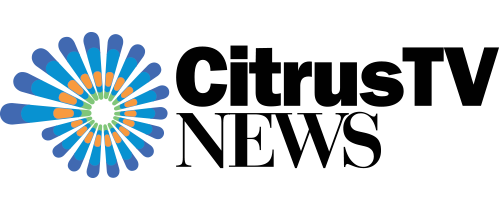Syracuse University Won’t Mandate Faculty, Staff COVID-19 Testing
By Ricky Sayer
SYRACUSE, N.Y – Syracuse University will not require their faculty and staff to be tested for the coronavirus before they return to campus this fall, Vice Chancellor Mike Haynie announced during a University Senate forum last month. Students are required to be tested for COVID-19 before they travel back to campus in August, and then again once all students return to campus.
“We’re going to create the opportunities for faculty and staff to be tested,” Haynie said. “We’re going to do this in a voluntary way and in partnership with Onondaga County, but we’re not- just like we’re not requiring it of faculty, we’re not requiring it of staff.”
Haynie said they aren’t requiring it because the majority of faculty and staff live in Central New York, in contrast to students who come from different regions, states and countries. The decision was made in consultation with Onondaga County officials, according to Haynie.
“We’re being told it’s an unnecessary step for us to test the entire faculty and staff population given the rate of infection locally,” Haynie said.
Faculty reaction to the decision is mixed.
Gregory Heisler, who teaches photography in Newhouse – and did not hear Haynie’s explanation as to why testing would be required, called the decision ‘negligent’ on the part of the university. He called it a “giant hole” in the university’s efforts to ward off a coronavirus outbreak on campus.
“Is it because it is a privacy thing,” Heisler speculated. “Like I’m not sure what it is. It’s crazy. It really is, it’s crazy.”
In the University Senate forum Zoom chat, faculty members shared similar concerns.
“Not testing all puts people at risk unnecessarily,” wrote Beth A. Ferri, a School of Education professor.
New York State’s higher education reopening guidelines, which were released last month, do not include a requirement that faculty, staff, or students be tested, however, it includes a recommendation that they are.
The state currently mandates that all employees coming to work on campus must be screened daily. Students do not need to be screened daily, according to the guidelines.
At Syracuse University, students, faculty, and staff coming to work or research campus will be screened on a daily basis using a questionnaire, the university announced Thursday. The two questions ask if anyone in their household has had to quarantine or self-isolate due to COVID-19, as well as if they are experiencing any COVID-19 symptoms.
Student Association President Justine Hastings said like students, faculty, and staff should be tested.
“I don’t think it makes sense to test just students and not test the other beings in the spaces along with the students,” Hastings said.
Hastings said she doesn’t mean to imply that younger people aren’t affected by the coronavirus, but that she knows from news reports they are simply less likely to see severe consequences in comparison to those who are older.
“It’s interesting that older individuals like faculty and staff weren’t being tested,” she said.
During the senate meeting, Assistant Provost Amanda Nicholson wouldn’t commit to saying how the university plans to enforce the university’s rules about social distancing and mask-wearing. Nicholson said the university was still finalizing the enforcement levels and processes.
Nicholson did indicate that people wouldn’t be penalized for forgetting to put on their mask while walking or pulling a mask down as they walk across the quad. She did however say there could be consequences for people who throw parties.
“You know, that’s a totally different thing. And someone hosting a huge party in a frat house. Right. I mean, so there’s this levels of this, the latter would be immediate suspension. I mean, we will. That’s all I can tell you.”
There are “huge concerns” surrounding student behavior, Nicholson said.
The university’s rules will be outlined in an upcoming “social compact,” Nicholson said. A recent draft of the compact, which SU will encourage students to sign, includes a pledge they avoid leaving Central New York, wear masks, and stay 6 feet apart, according to Student Association President Justine Hastings.
In the University Senate forum, Nicholson said the rules won’t just apply to residence halls, they will apply to the off-campus neighborhoods where students and faculty members live. Nicholson said the university wouldn’t allow social gatherings.
“You can gather with your own family unit and your own apartment, or your own floor of a residence hall – that’s allowed. But no big parties, all the rest of it,” Nicholson said.
Breaking the rules would equal a break in the code of student conduct, Nicholson said. She indicated that if students egregiously break the rules included in the social compact, “swift and heavy should be the way we come down on students because otherwise, it will just continue.”
“If students don’t feel they can uphold this deal, they need to be online or they need to do something else because this is going to be the deal,” Nicholson said.
In the University Senate forum Zoom chat, senators expressed doubt that students would follow the rules.
“Since “social compact” hasn’t worked too good with not cheating or reading for class, how is this going to work? how do we KNOW who they’re hanging out with or where or when,” wrote Deborah Pellow, an anthropology professor at the Maxwell School.
Professor Margaret Susan Thompson shared her concerns about what the university’s enforcement policies could mean if DPS is involved.
“Do we really want the university to become a police state? Especially at this time in history? This is really complex,” Thompson wrote.
Syracuse University did not respond to multiple requests for comment.

